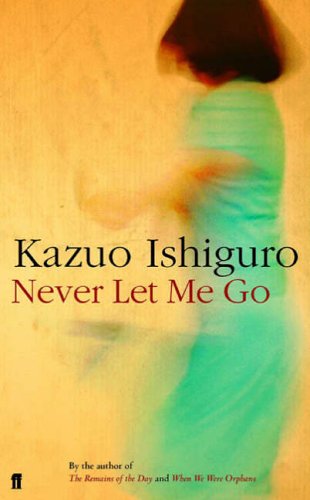My copy of this book was afterworded by Stephen Koch. I did not much agree with his points (he stressed sexuality and rape to a point which I found annoying especially). I know that one must speak with boldness and confidence in writing such a thing, but his tone somehow seemed arrogant and absurd. Mr. Koch claims that the modern reader cannot appreciate Lucie in the way that she was intended -- I do not agree with this at all. A reader, in this day, who is literate enough to grasp the madonnas of yesteryear are educated enough, I think, to understand exactly what she is; her naivety and virtue are not borne of simplicity, but as a physical imagining of purity. Obviously. And I think that it was a strength of Dickens', with just a small glimmer, to introduce the young girl at the gallows to have just as much if not more courageous strength in purity and character/emotion than the heroine. I am, however, a big fan of the name "Lucie". How precious and cute in its spelling.
 Anyway, speaking of supporting literature, I have also just finished Fyodor Dostoevsky's Notes from Underground (translated by Richard Pevear and Larissa Volokhonsky), which was given to me from the beau as a birthday gift. This translator duo is amazing. Unlike my experience with Koch's writing, I hung on to almost every word in the foreward for Notes with a wonder similar to what I feel for the foreward in Hawthorne's Scarlet Letter. Translation is an art, as I've come to learn, and Pevear and Volokhonsky do it with finesse and respect. They explain their strenuously particular word choice in comparison to other translations, and this is a dire importance. The folks know what they're doing, and it is appreciated so that I as the reader can get the full value and meaning of the work (or as close to it as possible) without learning another language -- though I'd love to. They write beautifully themselves, aside from this as well; "In fact, we do not really see [the author], we only hear him, and not through anything so respectable as a window, but through a crack in the floorboards". Superb.
Anyway, speaking of supporting literature, I have also just finished Fyodor Dostoevsky's Notes from Underground (translated by Richard Pevear and Larissa Volokhonsky), which was given to me from the beau as a birthday gift. This translator duo is amazing. Unlike my experience with Koch's writing, I hung on to almost every word in the foreward for Notes with a wonder similar to what I feel for the foreward in Hawthorne's Scarlet Letter. Translation is an art, as I've come to learn, and Pevear and Volokhonsky do it with finesse and respect. They explain their strenuously particular word choice in comparison to other translations, and this is a dire importance. The folks know what they're doing, and it is appreciated so that I as the reader can get the full value and meaning of the work (or as close to it as possible) without learning another language -- though I'd love to. They write beautifully themselves, aside from this as well; "In fact, we do not really see [the author], we only hear him, and not through anything so respectable as a window, but through a crack in the floorboards". Superb.The book itself, is the isolated melancholy of a solitary man typical of Dostoevsky. His self-inflicted torture is hard to read at times, with little sympathy being afforded to the speaker. A ray of possibility of escape from this is brought with Liza (whom I cannot help but to imagine as Marion Cotillard, though I know that it's inaccurate), but she too is quickly gotten rid of, disappointingly, and the work ends somewhat abruptly...but also fitting of the hopelessness of the character. I appreciate the simplicity of this work -- the narration seems honest, and makes me wonder about Dotoevsky's own mentality, though it seems that these pessimistic tones are more reflective of the people who interested him rather than he himself. Taking Notes more as a train of thought than as a story, I enjoyed it as something between a character study and a release of thought/ideas and point of view.
Next up is another Russian novelist (also a part of the birthday gift previously mentioned): The Master and Margarita by Mikhail Bulgakov. My Lithuanian boyfriend seems to favor the eastern european regions.

